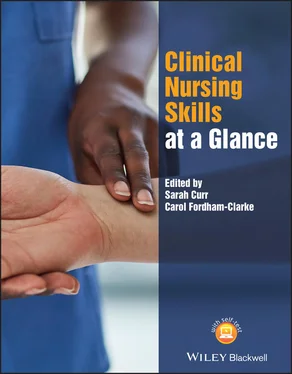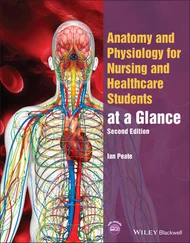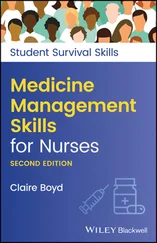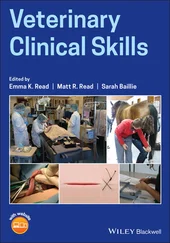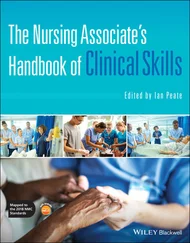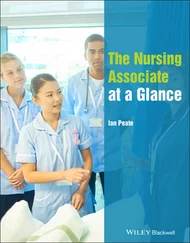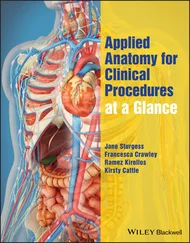In healthcare, informed consent must be achieved for all interventions and this includes initial and ongoing assessments, tests, treatments, and subsequent care provision.
It is important to note that informed consent is only valid for the period of that intervention. If that interaction is repeated, consent will need to be obtained again. This is required for all healthcare interventions.
Language barriers – these can be mitigated by using translated material and translation services ( Figure 7.2).
Visual impairment – ensure that the patient has all usual visual aids and consider whether larger text may be available for written material. Written material is also available in braille ( Figure 7.3).
Aural impairment – ensure that the patient has all hearing aids and that these are working effectively. Consider whether a quieter area would be more appropriate to provide the information. The patient’s wish for privacy and dignity must also be taken into consideration here.
Inability to communicate – there are multiple communication tools available and patients will often have their own, so most communication challenges can be overcome. In the case of an unconscious patient, consent cannot be obtained and healthcare professionals are required to act in the best interests of the patient.
Lack of capacity – if a lack of capacity is suspected this must then be tested. 1
The healthcare professional who is gaining consent must ensure that they understand the information being given, are able to answer relevant questions on the topic (Royal College of Nursing 2017), and have time to undertake the task.
To ensure informed consent, the healthcare professional must provide all key information, answer questions, and then ascertain understanding by asking questions to ensure that the information has been retained and recalled.
Consent must be gained voluntarily from the patient. If the patient is influenced by other healthcare professionals, family, friends, or significant others, it is our duty to report this to the multidisciplinary team caring for the patient.
Remember that, although informed consent is a professional requirement, it is also a legal requirement. Withholding key information which then results in harm can result in a claim of negligence by omission (Montgomery v. Lanarkshire Health Board 2015).
Ensure that you have all relevant material, i.e. written material, translator service.
Ensure you have an appropriate space to gain the consent.
Procedure – Informed Consent
Introduce yourself and advise that you are gaining consent for the required procedure. For many procedures, you explain the procedure you are doing and ask if they consent to this. The detail required will depend on the complexity and risks of the procedure: e.g. surgery requires detailed information to be provided and written consent.
Confirm the patient's name, date of birth, and other identifiers as required by local Trust policy.
Explain the nature of the procedure.
Explain why the procedure is being proposed.
Highlight the risks of the procedure.
Provide information on the benefits.
Advise what will happen if the procedure is not performed, and what the prognosis will be.
Avoid using medical jargon and check for understanding after each stage of the process.
Provide the patient with adequate time to absorb the information given and read all written material.
Return to obtain informed written consent, with a signature ( Figure 7.4), and file this appropriately within the patient’s notes.
Using a family member to translate could result in the full information not being provided to the patient. This would not be valid consent and the healthcare professional could be held to account in the event of an adverse outcome.
Do not assume that there is a lack of capacity because you feel that the decision is unwise. This could result in charges of battery (Dimond 2015).
1 Dimond, B. (2015). Legal Aspects of Nursing, 7e. Harlow: Pearson.
2 Mental Capacity Act 2005 (c.9). https://www.legislation.gov.uk/ukpga/2005/9/contents
3 Montgomery v. Lanarkshire Health Board (2015) UKSC 11. https://www.supremecourt.uk/cases/docs/uksc‐2013‐0136‐judgment.pdf
4 Nursing & Midwifery Council (2018). Professional Standards and Practice of Behaviour for Nurse, Midwives and Nursing Associates. London: Nursing & Midwifery Council.
5 Royal College of Nursing (2017). Principles of Consent: Guidance for Nursing Staff. London: Royal College of Nursing.
1 1The healthcare professional must ascertain that the person has an impairment, which means that they cannot do one or more of the following: (i) understand information presented; (ii) retain information sufficiently to make a decision; (iii) weigh up the information provided; (iv) communicate their decision (Mental Capacity Act 2005).
Table 8.1 Specific laws that relate to reportable activities.
| Act of Parliament |
Year of publication |
| Misuse of Drugs Act |
1971 |
| The Public Health (Control of Disease) Act |
1984 |
| Road Traffic Accident Act |
2010 |
| Terrorism Prevention and Investigation Measures Act |
2011 |
| Data Protection Act |
2018 |
Table 8.2 Human rights articles relating to healthcare.
| Article |
Related to healthcare |
| Article 3 |
Freedom from torture and inhuman or degrading treatment |
| Article 5 |
Right to liberty and security |
| Article 8 |
Respect for your privacy and family life, home, and correspondence |

Figure 8.1 Engaged clip for curtains.
Table 8.3 The six Ps of social media.
Source : Nursing & Midwifery Council (2018b).
| Professionalism |
Ensure professional profile and professionalism with all posted material |
| Positive |
Keep posts positive. Grievances have no place in social media |
| Patient/person |
Think about the person. If this post concerned you, would you want it to be uploaded to social media? |
| Protect |
Protect yourself, your colleagues, employer, and the public |
| Pause |
Stop and think. If unsure do not post |
The Nursing & Midwifery Council (NMC) code, section 5, focuses on prioritising people, which highlights upholding dignity whilst also focusing on respecting people's right to privacy and confidentiality (NMC 2018a).
Privacy falls under confidentiality in law, which focuses on handling data appropriately and securely, and only sharing it for specific reasons (Data Protection Act 2018).
Under law, confidentiality can be waived in order to prevent harm to oneself, by self or others, and to prevent harm to others. Specific laws refer to activities that require referral to authority bodies ( Table 8.1).
Читать дальше
